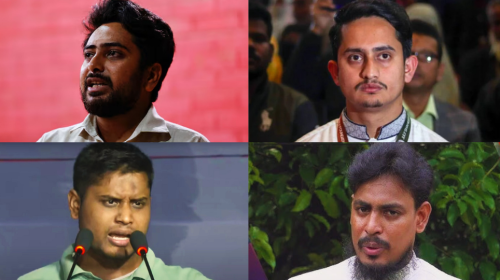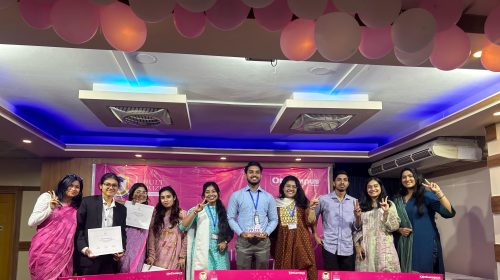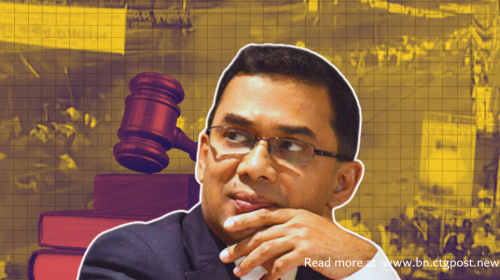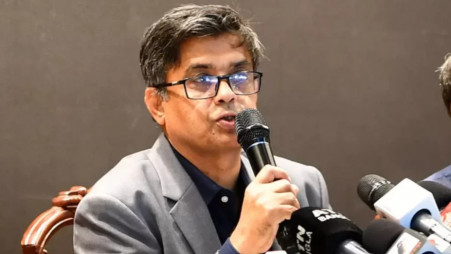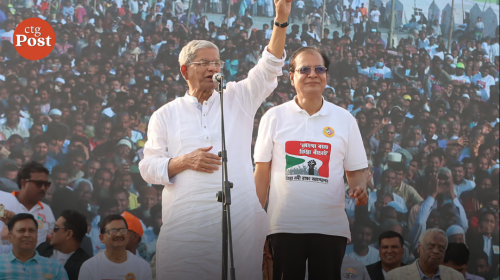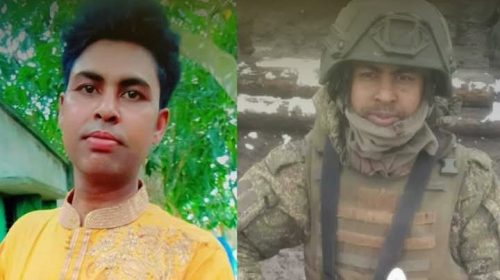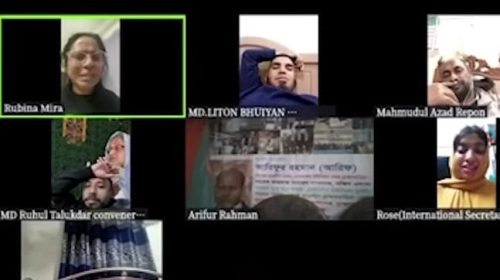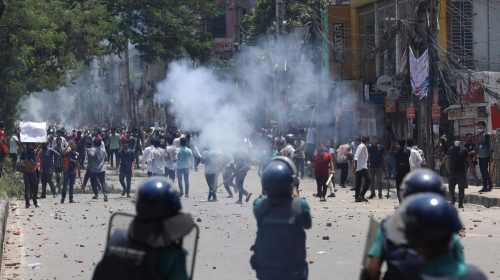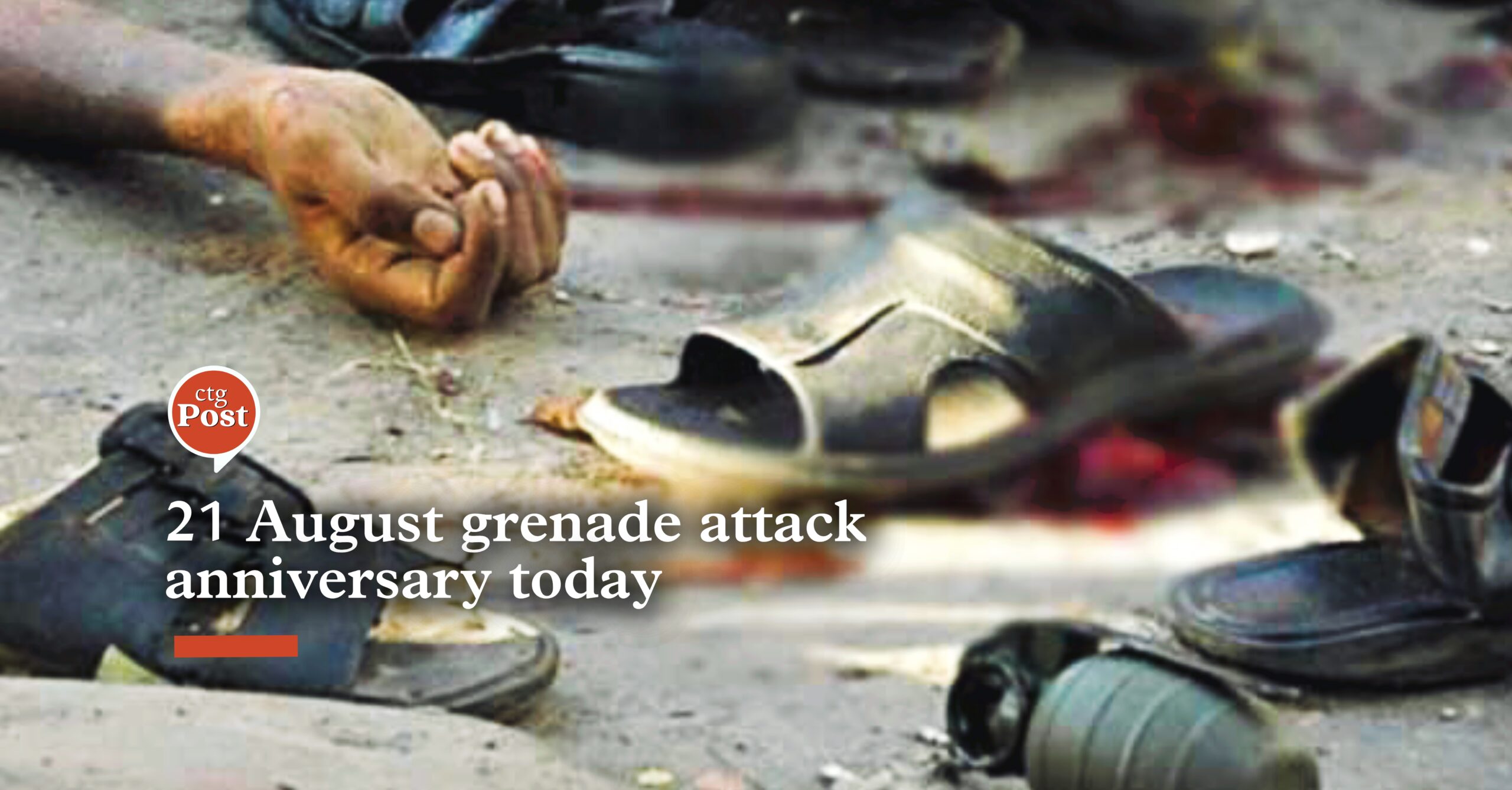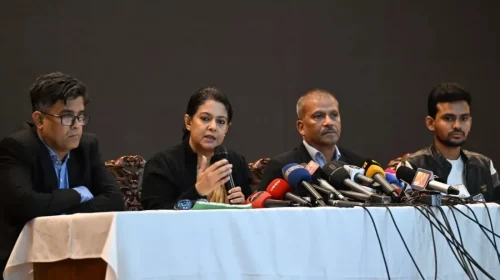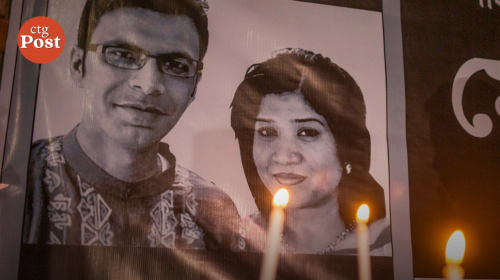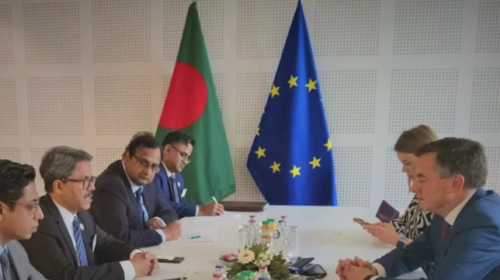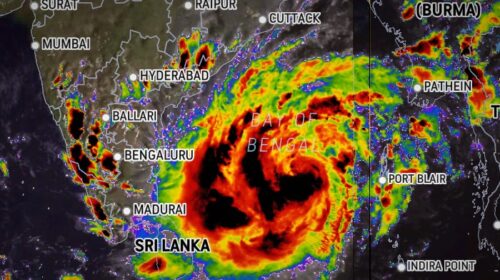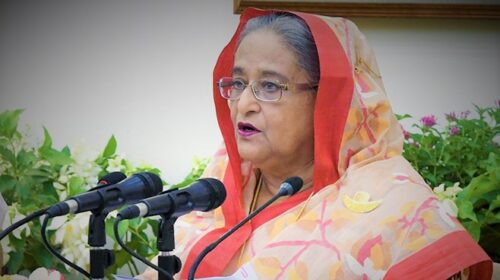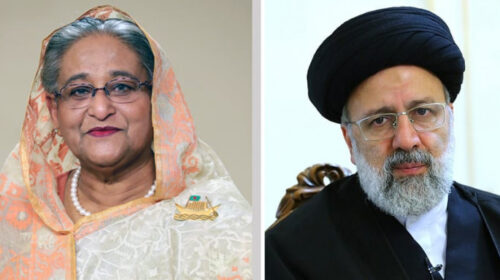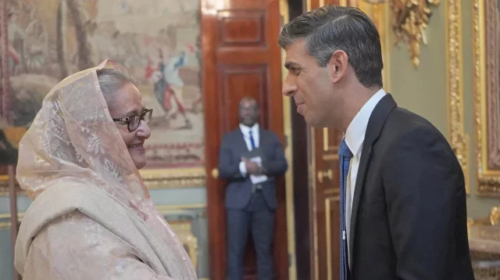The 19th anniversary of the gruesome grenade attack on an Awami League (AL) anti-terrorism rally in the capital will be observed today (August 21) with heavy hearts.
On this day in 2004 during the BNP-Jamaat coalition government, this unprecedented grenade attack was carried out on a peaceful anti-terror rally of the Awami League on Bangabandhu Avenue in the capital.
The party leaders and activists formed a human shield to protect the then opposition leader and incumbent Prime Minister Sheikh Hasina.
That day, Sheikh Hasina miraculously survived the infernal grenade attack. Seeing that the main target of the assassins Sheikh Hasina survived, 12 rounds were shot at her car. However, the targeted bullets could not penetrate the bulletproof vehicle carrying Bangabandhu’s daughter. Immediately after the attack, Sheikh Hasina was cordoned off in a car and taken to her then residence Sudha Sadan in Dhanmondi.
But, 24 people including the then Women Affairs Secretary of Awami League and wife of late President Zillur Rahman were killed and over 500 others injured in the attack and many of them became crippled for life.
Those others killed in the barbaric grenade attack included the then opposition leader’s personal security guard Lance Corporal (retd) Mahbubur Rashid, Abul Kalam Azad, Rezina Begum, Nasir Uddin Sardar, Atique Sarkar, Abdul Kuddus Patwari, Aminul Islam Moazzem, Belal Hossain, Mamun Mridha, Ratan Shikdar, Liton Munshi, Hasina Mamtaz Reena, Sufia Begum, Rafiqul Islam (Ada Chacha), Mostaque Ahmed Sentu, Md Hanif, Abul Kashem, Zahed Ali, Momen Ali, M Shamsuddin and Ishaque Miah.
Prominent among those who suffered serious splinter injuries included Sheikh Hasina, Amir Hossain Amu, Abdur Razzak, Suranjit Sengupta, Obaidul Quader, Advocate Sahara Khatun, Mohammad Hanif, Prof Abu Sayeed, and AFM Bahauddin Nasim.
Fear and terror engulfed the entire capital after the grenade attack. Condemnation and grief of this massacre spread across the country and abroad.
After the attack, when the Awami League leaders and activists were busy trying to save themselves and others, the police charged the protest march fiercely with batons and tear shells. At the same time, all traces of the carnage were destroyed.
The BNP-Jamaat coalition government even staged the ‘Joj Mia’ drama to cover up the incident with state sponsorship and direct support.
Marking the anniversary, the ruling AL and its associate bodies, social-cultural and professional organisations have chalked out elaborate programmes.
Tributes will be paid to the grenade attack martyrs by placing wreaths at the altar built in memory of the martyrs in front of the party’s Bangabandhu Avenue centre office here at 11am.
AL will organise a discussion at its central office at 11.15 am. Prime Minister and AL President Sheikh Hasina will chair it.
Awami Swechchhasebak League will pay homage and hold a torch-light vigil at 5.21 pm recalling the memories of August 21 martyrs. Krishak League will hold discussion and doa mahfil.
On August 23, Mahila Awami League will hold a discussion on the death anniversary of Ivy Rahman, one of the martyrs of August 21 attack and former president of Mohila Awami League.
On August 24, Awami League, its Dhaka city south and north units and associate bodies will pay tributes to Ivy Rahman by placing wreaths at her grave in Banani graveyard at 9am.
Jatiya Sramik League will hold a memorial meeting in Tejgaon Industrial area at 3pm marking the death anniversary of Ivy Rahman on that day.
A Dhaka court on October 10 in 2018, sentenced to death 19 people, including former state minister for home Lutfuzzaman Babar, and awarded life imprisonment to another 19, including BNP acting chairman Tarique Rahman, in the murder case.
Judge Shahed Nuruddin of Dhaka’s Speedy Trial Tribunal at that time also sentenced 11 others to different prison terms while his judgment contained a 12-point observation on the background, motive and consequences of the attack.
According to the trial court verdict, incumbent Prime Minister and the then opposition leader Sheikh Hasina was the main attack target though she narrowly escaped the death, sustaining hearing impairment.
Two separate cases, one for murder and another under Explosives Substances Act were filed on August 22, 2004, and the police on June 9, 2008 filed the charge sheet and the court indicted the accused on September 29, 2008.
Police’s Criminal Investigation Department (CID) on July 2 in 2011 submitted a supplementary charge sheet before the court which framed charges afresh after taking into cognizance the new charge sheet on March 18, 2012.
The lower court on November 27 in 2018 sent 37,385 page case documents including the judgement to the High Court for subsequent legal procedures and the High Court on January 13, 2019.
According to the attorney general’s office, the process for hearing the death reference and convicts appeal began on December 5, 2022 at the bench comprising Justice Shahidul Karim and Justice Md Mostafizur Rahman as designated by Chief Justice Hasan Foez Siddique.
The other major death penalty convicts are the then junior minister Abdus Salam Pintu, his brother militant HuJI-B leader Mawlana Tajuddin, intelligence officials former major general Rezzakul Haider Chowdhury, former brigadier general Abdur Rahim.
The rest of the convicts who received the capital punishment are militants Mowlana Sheikh Abdus Salam, Abdul Mazed Bhat, Abdul Malek, Shawkat Osman, Mohibullah, Abu Sayeed, Abul Kalam Azad, Jahangir Alam, Hafez Abu Taher, Hossain Ahammed Tamim, Moin Uddin Sheikh, Rafikul Islam and Mohammad Uzzal and transport operator Mohamamd Hanif.
Other than Rahman, the political figures who were handed down life imprisonments are – ex-premier Khaleda Zia’s the then political adviser Haris Chowdhury and former BNP lawmaker Qazi Shah Mofazzal Hossain Kaikobad.
Militants Shahadat Ullah alias Jewel, Abdur Rouf, Sabbir Ahmed, Arif Hasan, Hafez Yahia, Abu Bokor, Ariful Islam, Mohibul Muttakin, Anisul Mursalin, Mohammad Khalil, Jahangir Alam Badar, Mohammad Iqbal, Liton, Shafikur Rahman, Abdul Hai and Ratul Ahmed Babu were sentenced to different jail terms.
Assailants carried out the attack with military hardware “Arges” grenades on the rally, which Awami League convened to mobilise public campaign against terrorism.
The higher court also accepted the convicts’ appeals for analogous hearing.
The High Court is nearly set for a mandatory death reference hearing on a trial court verdict that handed down the death penalty to 19 people for masterminding and executing the August 21, 2004 grenade attack.


